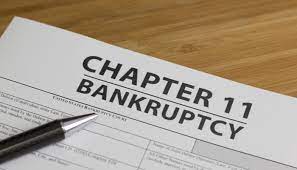
Venator emerges from Chapter 11
Submitted by:
Andrew Warmington
Venator Materials has completed its Chapter 11 recapitalisation process and claims to have “emerged with an improved balance sheet and lower debt”. It had entered Chapter 11 bankruptcy in May and had the recapitalisation plan confirmed by the Bankruptcy Court in July, after reaching agreement with “the overwhelming majority of its lenders and noteholders”. As a result of the deal, the company’s debt has fallen from more than $1 billion to about $200 million by converting it to equity.
Venator added that it expects its credit rating to improve “in due course” and that it is now “better positioned to address macroeconomic and market challenges”. A new board has been formed, chaired by Katherine Harper and comprising “senior executives who have extensive experience and sector expertise”. Simon Turner remains as president and CEO, while Jame Donath, who was appointed to the board in January 2023 in connection with the recapitalisation process, remains in place there.
“Against the backdrop of unprecedented macroeconomic headwinds, we have stayed focused on stabilising the business and acting in the best interests of our stakeholders” Turner said. “The recapitalisation provides us with an improved capital structure and balance sheet. We are now better positioned to address what continues to be a challenging market.”
Venator’s share price fell by about 96% from a peak of $25.50 to less than $1 after its IPO in 2017. As a result, investor J&T MS 1 SICAV publicly demanded a change of direction, describing Venator as “by far the worst financially performing TiO2 producer – and one of the worst in the entire chemical sector”. The company had already addressed its problems by implementing a $50 million cost reduction programme, closing a $51 million sale-leaseback transaction for a site in its Color Pigments business and selling the iron oxide business for an enterprise value of $140 million.
